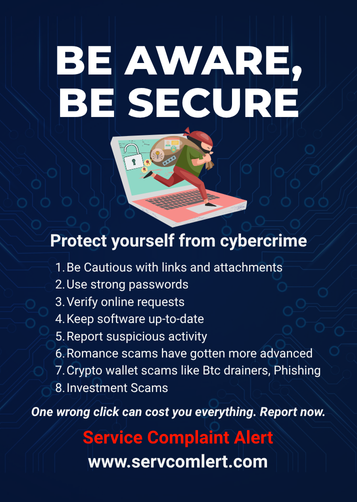The first message didn’t feel like a threat. It was warm, curious, and almost flattering — a comment about a shared interest in photography, followed by a link to a stunning travel album. Weeks later, it became late-night conversations, inside jokes, and the thrill of having someone who seemed to truly “get” you. Then came the suggestion: a “safe” way to invest in cryptocurrency together, just until you could meet in person. By the time the truth revealed itself, the wallet was empty, the profile was gone, and the person you thought you knew had never really existed.
The reality is chilling: romance scams are no longer crude, one-off frauds run by opportunists. They are sophisticated, organized, and patient — often operating more like high-level corporate schemes than crimes of impulse. For victims, the emotional damage is matched only by the financial fallout. For everyone else, the warning is clear: the old “red flags” aren’t enough anymore.
Why Romance Scams Have Evolved
Not long ago, most online scams were blunt in their approach — fake lottery wins, implausible inheritance offers, or strangers declaring instant love after a single exchange. Today’s scams are far more nuanced. They often unfold over weeks or months, with scammers investing significant time into building trust before introducing financial hooks.
This shift is deliberate. Organized fraud groups have realized that a longer “grooming” period yields higher payouts. Victims are less likely to suspect deceit when the relationship feels layered and authentic. Scammers also leverage legitimate-looking websites, professional-level design, and even real-time crypto dashboards to create the illusion of credibility.
The rapid rise of cryptocurrencies has added another dimension. Because blockchain transactions are irreversible and pseudonymous, scammers can move stolen funds across multiple wallets in minutes, making traditional recovery methods difficult. This is why prevention now needs to be as sophisticated as the scams themselves.
The Psychology They Exploit
The common thread in most modern romance scams isn’t gullibility — it’s vulnerability. Scammers prey on life transitions and emotional needs: a recent breakup, a move to a new city, the loneliness of remote work, or the stress of caring for an ill family member.
They mirror your interests and values, creating an uncanny sense of compatibility. They might subtly shift conversations toward finances, not in a pushy way, but as part of “sharing dreams” about a shared future. It’s a strategy of emotional reciprocity: the more you open up, the more they appear to do the same.
By the time an investment opportunity is introduced, it doesn’t feel like a financial transaction — it feels like an act of mutual trust. That’s what makes this kind of fraud so effective, and why victims often blame themselves afterward.
Spotting the Subtle Red Flags
The updated playbook of romance scams means you need to look for smaller, more nuanced warning signs:
- Unverifiable personal details: Their story is rich in emotional detail but vague on facts you can independently confirm.
- Delayed or avoided in-person meetings: Even when travel seems possible, there’s always a last-minute reason they can’t meet.
- Financial topics introduced in emotional contexts: Instead of asking directly for money, they frame investments as “our future” or “helping you grow.”
- Too-perfect compatibility: Their preferences and experiences always seem to align with yours, down to improbable coincidences.
- Pressure disguised as opportunity: A time-limited investment, a “market window,” or a crypto trend you need to act on immediately.
It’s important to remember that these signs may appear gradually, making them harder to identify in the moment.
Digital Security in the Age of Emotional Manipulation
Once a scammer gets you talking about crypto, the risk escalates quickly. They often direct victims to fake investment platforms, or worse, real exchanges where funds are sent to fraudulent wallets. This is where digital security tools — and habits — can be your strongest defense.
If you do choose to invest in cryptocurrency, use a secure, self-custody wallet with built-in verification and fraud-detection features. For example, Voyallet offers a multi-functional solution that not only stores crypto securely but also integrates staking and crypto card services, reducing exposure to high-risk platforms.
Equally important: enable two-factor authentication, use unique passwords, and never send funds to an address you cannot independently verify from multiple, trusted sources.
The Human Cost Behind the Headlines
In interviews with scam survivors, one theme comes up repeatedly: the financial loss is only part of the story. Victims describe the emotional aftershocks as a mix of grief, betrayal, and shame. Some isolate themselves socially, fearing judgment from friends or family. Others struggle with lingering trust issues that affect future relationships.
One woman, who asked to be identified only as “Rachel,” described how her scammer’s emotional manipulation was more painful than the $27,000 she lost. “He didn’t just steal my money,” she said. “He made me believe I’d found someone who saw me — really saw me — and then he used that against me.”
The trauma can be compounded by the lack of closure. Because scammers often operate overseas, prosecution is rare, and victims are left without answers or accountability.
Building Emotional and Financial Defenses
Protecting yourself from sophisticated romance scams requires both awareness and proactive boundaries:
- Verify early and often: Use reverse image searches, check LinkedIn profiles, and cross-reference any personal details they share.
- Separate emotion from finance: If someone you’ve never met in person asks for financial involvement — no matter how small — treat it as a critical red flag.
- Educate your social circle: Many victims don’t realize they’re being targeted until it’s too late. Discuss common scam tactics with friends and family.
- Use secure transaction tools: Avoid making transfers directly to personal wallets unless the recipient is verified through multiple channels.
- Trust your discomfort: If a situation feels too perfect or progresses too quickly, slow down and reassess.
Taking Back Control After a Scam
If you’ve already been targeted, time is critical. Report the incident to your bank or exchange immediately, and file a complaint with relevant cybercrime authorities. Some victims have had partial success in tracing stolen crypto through blockchain analysis services, though recovery rates vary.
Document every interaction — messages, transaction IDs, screenshots — as these can be vital if law enforcement or a recovery service becomes involved. And while it may feel difficult, share your experience with others. Not only can it help prevent someone else from becoming a victim, but it can also be an important step in reclaiming your sense of agency.
Looking Ahead
Romance scams will continue to adapt as technology and human behavior evolve. That means our defenses must adapt too — blending emotional intelligence with digital security practices. The goal is not to retreat from online connections, but to approach them with the same cautious optimism you’d bring to any major life decision.
Love and trust should never come with a transfer request. By recognizing the signs, setting clear boundaries, and using secure tools, you can protect both your heart and your wallet from those who would exploit them. And while scammers are getting smarter, so too are the people determined to stop them. Clearly, you can report to Service Complaint Alert (SCA) if you have recently experienced a scam.


















